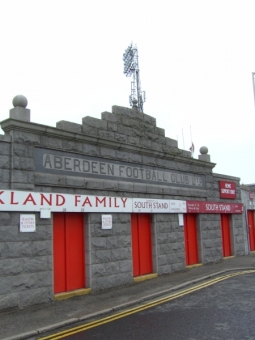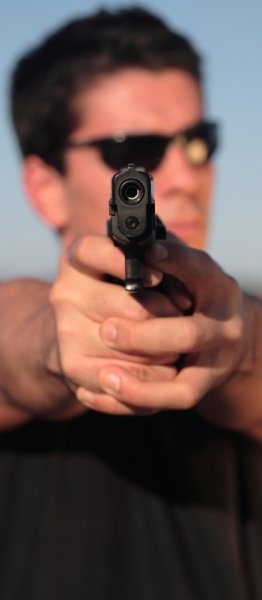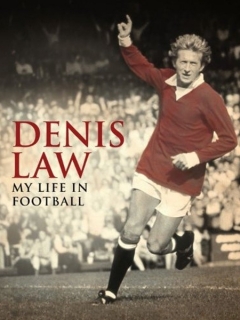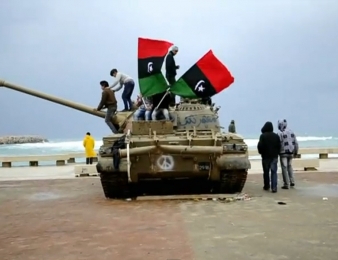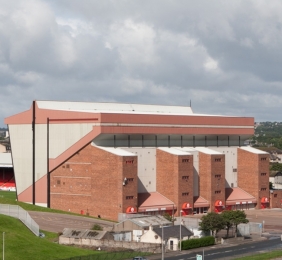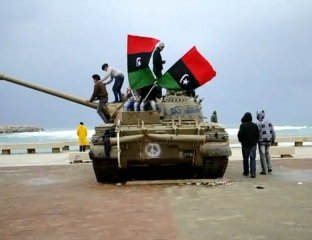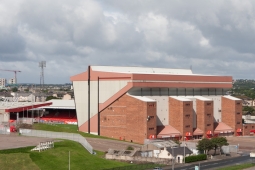By Jonathan Hamilton Russell.
The situation in Libya is complex and an understanding requires a historical perspective and the realisation that Libya is a tribal society which has many tribal and political interests. Gaddafi when he took power in Libya in 1969, in a bloodless coup, nationalised the oil and took it away from Western Control.
He used the money gained to invest in the social structure, i.e. health, education and social housing in Libya.
Gaddafi became involved in supporting’ Liberation’ wars in Africa and Ireland and this along with the Lockerbie tragedy led to sanctions and to initial bombings by the US in 1986. Sanctions led to a decline in the wealth of Libya and In the late 90’s Gaddafi changed his policy to the West due to the effects of these sanctions and to his even greater dislike of fundamentalist Islam in the form of Al Qaida and the Taliban. Libya was returned into the international fold and welcomed warmly by our own Prime Minister at the time Tony Blair.
Gaddafi admits that he has carried out human rights violations and torture on his opposition in particular to those linked to Al Qaida, to whom he is strongly opposed and for this he should, like any other abuser of human rights, be prosecuted. Al Qaida has had a strong following in Libya and Libyans were the largest grouping of fighters within Al Qaida in Iraq.
Gaddafi says he got his lead on the use of torture from the United States and if he is to be tried for human rights and war crimes so should lots of other national leaders and all those affiliated to NATO.
Gaddafi was instrumental in setting up the African Union and has helped in the development of infrastructure projects in Africa. According to the United Nations, Libya until the present conflict had the best social indicators in the Third World. Gaddafi has promoted the equality of women and is opposed to the backward attitude of most of the Arab world in relation to their attitudes towards women. Gaddafi did instigate his own form of democracy very similar to Soviet Style Workers committees and had no formal position as head of state. In reality he has been at the head of the country and has increasingly been concerned about hanging on to power.
Gaddafi is a complex man who has done both good and bad but the media portrayal of an evil dictator is to say the least over simplistic This does not mean that his desire to hold onto power has not led to an over controlling and oppressive state but it does mean that our response to him should be more balanced particularly when you compare Libya to other regimes in the Middle East which are equally repressive but also have greater disparities in wealth. There have been reports of Gaddafi’s troops having been involved with rape in Misrata a common occurrence in war which is barbaric and unacceptable.
The United Nations staff, on the ground in Libya say there is no hard evidence of this. However a spokesperson from the International Court on war crimes say they have evidence that systematic rape is being used by the Gaddaffi regime. This clearly needs further investigation before any firm conclusion can be reached.
Libya is a tribal society and the West of the country has benefited more than the East.
The bombings were aimed at stopping a humanitarian disaster yet where has the outcry been about those supporters of Gaddafi tortured and killed
Gaddafi clearly has his opponents but these are a mixture of Western sympathisers including those who want more democracy and those who follow Al Qaida. The majority of leadership of the Rebels in Banghazi is presently made up of ex Libyan Government ministers who previously had no interest in Western Democracy but are defecting as they see the imminent collapse of the regime.
A significant number of the more experienced of those fighting for the revolution gained their military skills fighting for Al Qaida in Iraq and are to be feared by many of those who support Gaddafi. Getting rid of Gaddafi is not likely to lead to a peaceful democratic Libya but is much more likely to lead to greater internal division and continued violence.
The oil is to be found in the East of the country.
The eastern leaders have already agreed to give oil contracts to the West. The bombings were aimed at stopping a humanitarian disaster yet where has the outcry been about those supporters of Gaddafi tortured and killed, the killings and general plight of African Workers and to the casualties of NATO bombings? Why has Libya been selected for this type of intervention when the evidence is that equally bad oppression is taking place in other Middle Eastern countries.
Libya compared with most countries had only a small army and arms sales to Saudi Arabia – an equally oppressive state – are far greater. From 2008 until the last quarter of 2010 arms sales to Saudi Arabia from the UK were three times less than those to Libya.
War is always brutal and people always suffer on all sides, yet it appears to have become the norm to intervene in this way rather than to find ways forward via negotiation. This policy of military intervention has been used to disastrous effect in Iraq, Afghanistan Pakistan and Palestine.
The only beneficiaries of these conflicts are the arms companies burgeoning profits. Ordinary people on the ground pay for war by the murder or mutilation of their loved ones. Why were the attempts by the African Union and Venezuela to act as an intermediary for negotiations in the Libyan conflict so easily turned down? Nor any other attempts to broker negotiations put in place? Surely all forms of negotiation should have tried before the policy of protecting civilians turned into a military intervention aimed at regime change at any cost.
The cost of this action and the resulting likely cries for more military spending will lead to even greater cuts in our own social spending
NATO has moved from a position of ‘protecting civilians’ to regime change and is in effect putting many civilian lives in jeopardy.
This policy has never been sanctioned by our own Parliament and does not fit with the United Nations own charter as Libya has not invaded another country.
Our own Prime Minister, who was caught promoting the sale of arms to Middle East dictators at the beginning of the Middle East uprisings, has with his ally President Sarkozy of France been the main instigators of this military Intervention in Libya and have in many ways replaced Bush and Blair as the main instigators of military intervention in other states. President Obama initially hesitated but – as has sadly become his style – eventually taken a hawkish position in Foreign policy.
The results of these actions have lead to more civilian casualties and to the destruction of buildings and infrastructure and to the loss of social gains. The cost of this action and the resulting likely cries for more military spending will lead to even greater cuts in our own social spending. The United States spent over £750 million on the conflict in its first few weeks. In the UK the corresponding figure currently stands at around £300 million and it is forecasted that this will rise to one billion by September.
One factor that has got lost is that when Libya’s Foreign Secretary Moussa Koussa was interviewed by the Scottish police in relation to the Lockerbie bombings, yet we have heard nothing of these interviews.
Surely if he had evidence of Libya’s involvement this would have been given huge publicity and given as a justification for military action. Dr Jim Swire has warned against any evidence from defectors being taken seriously as they have interests of self-preservation. There is still significant concern about the correctness of the present verdict regarding the Lockerbie bombing
We appear to have become numb to the use of brutal military action by our own Government and have fallen for the media’s over-simplistic justification of getting rid of a mad and brutal dictator. NATO has extended it’s timescale for operations and calls from South Africa are going unheeded. Al Jazeera has shown footage of Western troops West of Misrata yet one of the main points of the UN Security Council was to exclude foreign involvement on the ground.
I believe that a negotiated settlement should be sought with the clear aim of setting up elections. It would then be up to all the Libyan people to decide on their future. All bombings by NATO should stop while negotiations take place. One of the main demands of the UN Security council resolution was for a cease fire. Given any ceasefire it should be United Nations Peacekeeping forces that should be put on the ground not NATO troops that are on the ground.
All those responsible for war crimes and torture should be tried at the International War Crimes court.
